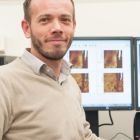
Politecnico di Torino (POLITO)
Politecnico di Torino was founded in 1857 and is a leading public university in technical-scientific teaching and research with over 35000 students from > 100 countries, 700 Ph.D. students and > 3000 employees. In November 2013, it was awarded by the EC with the label “HR Excellence in Research”, recognizing its commitment in offering to researchers coming from all over the world a positive and challenging environment. It can count on a great experience in scientific projects, being currently involved in 91 H2020 funded research and innovation projects (about 31M€).
Department of Applied Science and Technology (DISAT)
The Department of Applied Science and Technology (DISAT) focuses on research and education involving the fundamental principles of matter and energy, their transformation and related engineering applications, through a wide, complementary range of disciplines: physics, nanotechnology, chemistry, materials science, metallurgy, chemical, physical and materials engineering spanning from conception of new processes, to development of new chemical reactors and process units by modelling and experimental tools.
Team role and expertise in the project
POLITO will develop and optimize, via experimental and model analyses, the CaCO3 precipitation process (Prof. Bensaid). The in vitro nanotoxicity of the CaCO3 particles produced will be assessed in the departmental biology labs. The exploitation of CO2 will be also be investigated via electrochemical routes (Proff. Gerbaldi, Bella, Hernandez) for the production of higher added value products.POLITO will characterize the properties and effects of all the cement additives: the group of DISEG led by Prof. Ferro deals with the mechanical characterization of cement-based composites, in particular by investigating the properties of fracture energy and durability. Within this research group, Dr. Restuccia will be in charge of optimizing the CaCO3 particles size distribution of the particles within the cement-based composites. POLITO will also investigate the exploitation of calcium carbonate as a component for polymer composites, by Prof. Fina. POLITO will be active for the modelling and experimental evaluation of the performance of all the additives developed in RECODE, by leading the LCA and REACH studies of the project (prof. Ferro). POLITO will also take part in the studies on the scenarios for the implementation of the CO2 conversion platforms throughout Europe as well as studies on the possible integration of the project concept with the production of different added-value chemicals compared to those targeted in RECODE. POLITO will finally take part in the training and dissemination activities.



